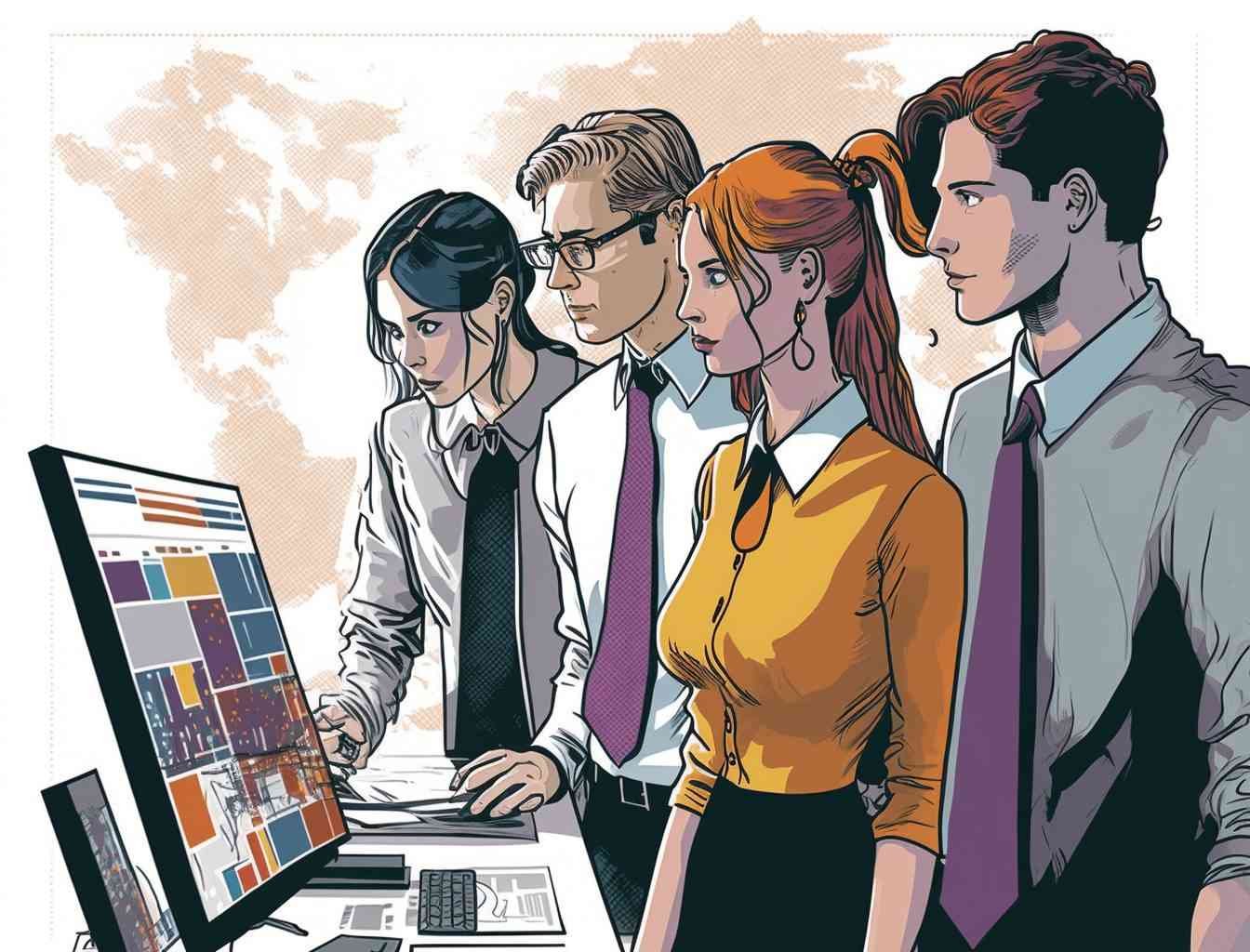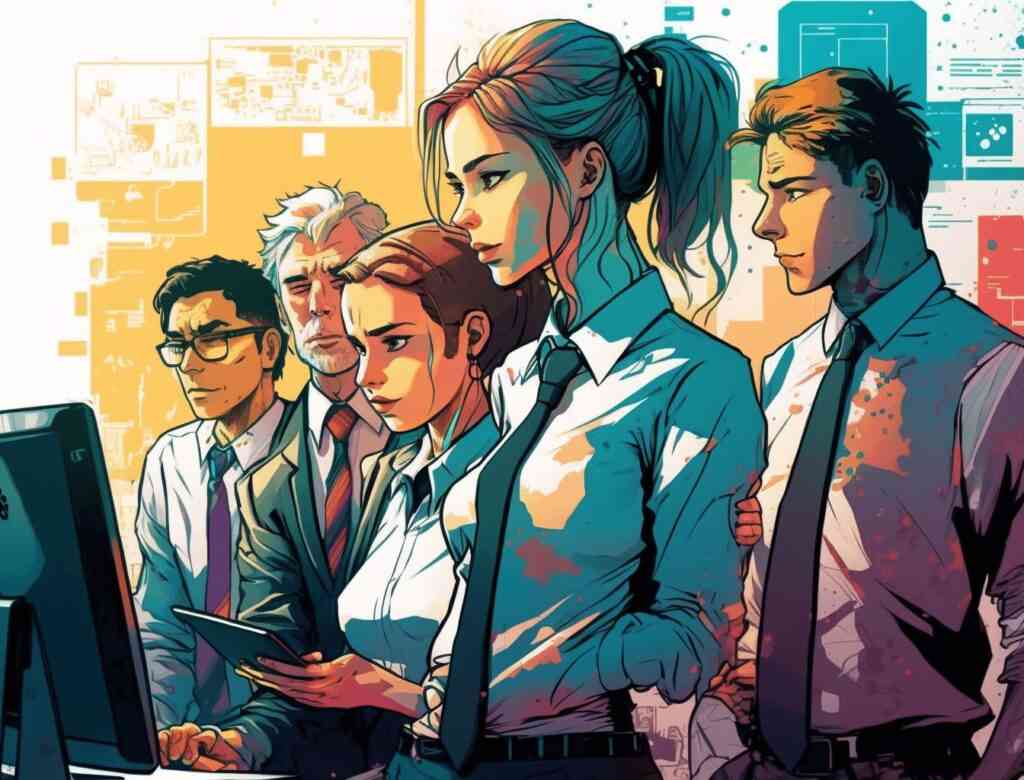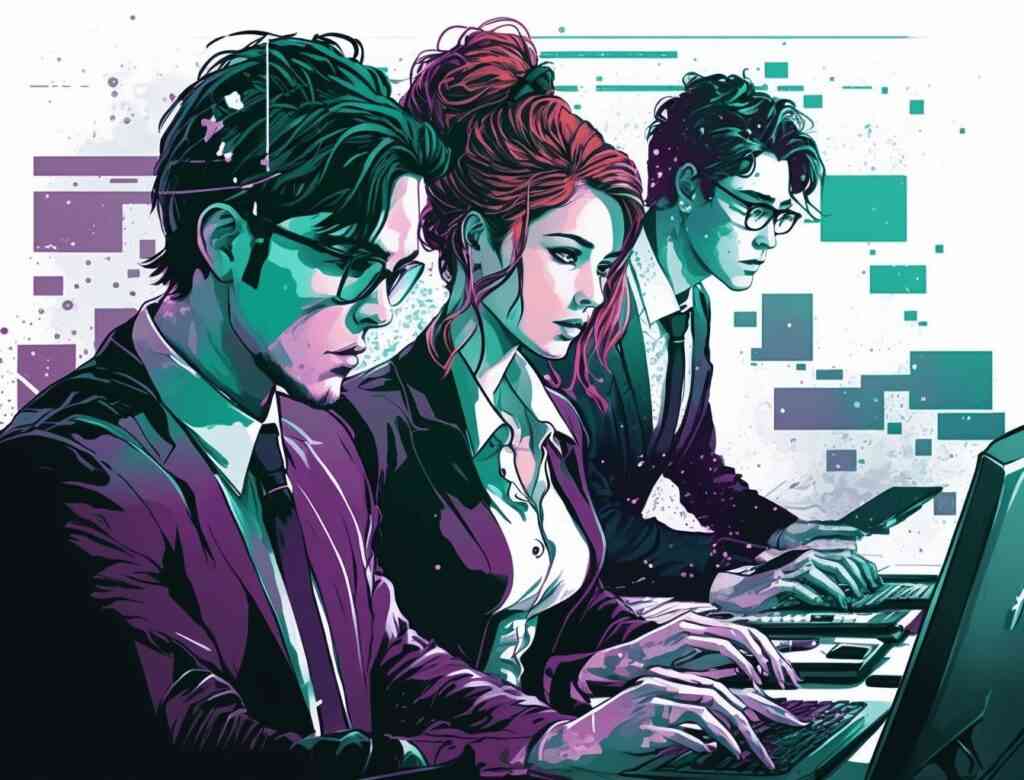Science
How Did Life Rebound on Earth? The Answer Lies Within the Rocks
23 February 2026

What’s most difficult for humans, artificial intelligence has no problem with. And vice versa: AI can't handle everything that can be observed in the world of social interactions, ambiguities, and many other subtleties that are inherent to humans, says Prof. Maciej Błaszak, PhD, of Adam Mickiewicz University, in an interview with Katarzyna Sankowska-Nazarewicz
Artificial intelligence is getting more and more capable as we speak. The most prominent example is ChatGPT, which has surpassed humans when it comes to obtaining and providing information. Does this mean our supremacy over machines is coming to an end?
This could be the end of some professions. First of all, the ones involving algorithmic tasks, in other words, well-defined professions governed by rigid procedures and pattern recognition. These may include “ordinary” jobs, but also those that we consider extremely prestigious today, such as programmer or mathematician. The area of skills covered by them is a piece of cake for artificial intelligence.
And do machines have an advantage over us? We’ve known for almost 30 years that artificial intelligence is superior to humans in some areas, when Garry Kasparov lost the world chess championship to Deep Blue.
Was that an uneven battle?
That duel, however, was problematic not because a computer won against a man, but in that people play chess by completely different principles than a computer. Deep Blue was performing 200 million operations per second, while Kasparov did just a few. But grandmasters play using techniques such as image recognition, rather than analysis in the form of logic trees. Therefore, Kasparov was bound to fail.
The situation repeated itself in 2016, when Lee Sedol, a professional go player, lost 1:4 to the AlphaGo program.
I am not concerned about that at all. What I’m interested in instead is what followed this match. AlphaGo was simply turned off. And Lee Sedol met with his wife, hugged his daughter, went to lunch. He performed a myriad of activities that we don’t even think of as displays of intelligence, whereas they were entirely out of reach for the computer program. One could say that AlphaGo works in a narrow and deep manner, while a person works in a wide and shallow manner. But this “shallow” is not a disadvantage, because our brain wasn’t created to play chess or go. Basically, for him, the game is just a form of warmup, a means to achieve life goals. And artificial intelligence is first and foremost artificial – it does what it was programmed to do.

Not everyone thinks so. It’s been almost 10 years since Prof. Stephen Hawking said that “efforts to create thinking machines pose a threat to our existence.” More recently, Elon Musk, Steve Wozniak, and many AI researchers, among others, have called for a halt to work on AI “more efficient than GPT-4.” So perhaps one day HAL 9000, the rebellious computer from 2001: A Space Odyssey, will no longer be just cinematic fiction?
Such statements show, above all, that our minds are predictive. We don’t wait for something to happen, but try to foresee the chain of events. Meanwhile, in history, predictions, even those made by the most prominent figures, rarely come true.
So far, artificial intelligence is dependent on us, whereas the danger is that this situation may turn around. And I’m not even thinking about whether it will become smarter than us or develop self-awareness. Because we don’t really even know what self-awareness is in humans. The grim scenario is that at some point, humans will not be able to cope without artificial intelligence. Therefore, I wouldn’t prophesy that machines – straight out of sci-fi – will take over the world, but rather that they will make us feel increasingly retarded in motor, perceptual, emotional, or cognitive skills. And this is already happening.
To give a simple example: paradoxically, autonomous vehicles can be rather counter to our psyche, a very dangerous phenomenon. This is because the brain likes very much to be in control of what’s going on, and this feeling of control is a very strong motivating factor. For this reason, we prefer to be the driver of a car rather than a passenger. Another example is the growing problem with handwriting skills.
This, of course, has to do with the fact that the piece of paper is being replaced on a daily basis by a computer keyboard. What this demonstrates is that if we surround ourselves with solutions that make our daily lives easier and do many tasks for us, then some purely biological functions we once had well developed will simply disappear. And there’s no surprise in that, because our bodily functions are governed by a rule: get used or die.
Read also:
A teacher friend has complained that more and more essays turned in by his students had been written by the ChatGPT bot.
Let’s be realistic: the mindset of young people at the secondary-school level is first and foremost pragmatic. No one is going to dawdle for half a day over an essay anymore if a draft can be delivered to them by a machine in a few moments. The clever ones will at least rework the initial text in such a way that the teacher will have trouble recognizing who the author actually is. But, of course, the outcome will be what we’ve just discussed: that certain inherently human skills will vanish.
New competencies are in demand. On lists of hot professions of the future, a prompt engineer has been appearing recently, who can be described as an artificial-intelligence trainer. By asking precise questions or giving instructions, he or she is supposed to improve the quality of results generated by AI.
What if, over time, it turns out that the best question for the chatbot will be asked by the chatbot itself? Because the realm of language, logic, things that are well-defined, is the area that artificial intelligence can handle very well. A greater challenge is what’s going on between you and me in the moment: though our meeting is remote, I can still sense whether you like me or not. Or another example: it takes between 300 and 400 milliseconds to blink an eyelid, and it takes 100 milliseconds to recognize trust, so we actually figure out very quickly whether we’re welcome in company. These are the things that are most difficult.
I can also imagine a situation where ChatGPT would do this interview better than you. The problem is that, for me, this interview would be much worse. And that’s because you don’t cram every possible bit of information into this conversation, you’re asking questions subjectively, you have your own vision of this article. I think that areas involving creation, art, where the trait of individualism is important, will not be dominated by ChatGPT any time soon. Although it can already help you prepare for the interview, because it will do great research for you.

So maybe we should go in the direction of what Kasparov talked about in the concept of advanced chess? It was about combining the enormous computing power of a machine with the creativity and intuition of a human being.
Definitely, that’s the right direction. Because AI can be a great assistant, a supporting system: it will look up information, dig through codifications, compare regulations, and do a lot of other preparatory work for humans. In other words, what a human finds most difficult, AI has no trouble doing. Conversely, AI isn’t able to cope with everything we can observe in the world of social interactions, ambiguities, and many other inherently human subtleties. Let’s say you point out to me: Maciej, but I didn’t say that at all! To which I will reply: but I heard it. Even though I can’t repeat what I specifically heard. And the very thing that sets us apart from AI is our ability to combine the two worlds, while artificial intelligence, for the time being, works only in the well-defined area.
Let me explain this difference with one more example. We consider chess one of the most sophisticated games, but actually it’s quite easy to play as it’s a game of closed information. So if God, i.e., an entity of unlimited intelligence, exists, and were to play chess, he would be utterly bored, because all possible moves would be known to him. But at the other extreme, there’s another kind of sport. It’s soccer. Much more exciting for us than chess because fouls are part of the game here. This means that not even God can predict the course of a match because breaking the rules is an integral part of the game.
When you were talking about everything that constitutes our superiority over AI, what came to mind was a study conducted by researchers from the Catholic University of Lublin and the University of Łódź, showing that people automatically value paintings less when they learn that they were created by artificial intelligence.
This isn’t at all surprising. There are studies showing that when put in a specific situation, a human being has a completely different attitude towards a machine than towards another human being. An example is the ultimatum game, which demonstrates that we expect a person to receive fair treatment, but not necessarily from a computer. Imagine a situation where we $100 to split. A computer may split this amount extremely unfairly towards you, and you would still prefer getting a small fraction over nothing. And if you were to split the same $100 unfairly between you and me, I’d be more likely to give up the money altogether and leave you with nothing as well, just to teach you that I will not be treated like that.
In the case of the study you mentioned, it would be more interesting to see what the result would have been if these people didn’t know they were dealing with images painted by a robot.
Let’s try to make a guess.
I suspect that artistically unsophisticated people might like such work better. Because if you just want a “pretty picture” that takes into account all the knowledge from neuroaesthetics on solving issues of symmetry, contrast, or edges, then artificial intelligence will do a great job. But artwork like that would look good on the walls of a hospital or an office corridor. And images like that are already being painted by robots.
However, it’s one thing to create a “pleasant picture” and another to create a work of art. For the time being, a work of art can only be created by humans. Some experiments show that we should move away from art understood as mimesis, i.e., mimicking the real world, towards a form of art that offers what are called superstimuli. A good example for that are works by the German Expressionists Egon Schiele and Oskar Kokoschka, who painted human portraits resembling caricatures. Those pieces are intriguing, mysterious, they evoke emotions in us, which makes them unforgettable.
Speaking of art – can the ability to play go also fit into this category? In the documentary AlphaGo you see how important this game is to Koreans and how devastated they were after Lee Sedol’s defeat.
In Asian culture, the rituals of making tea, cooking rice, or just playing go have been cultivated for centuries. They are integral parts of culture that help build social norms. And if suddenly some of these rituals or norms are brutally appropriated by a computer program, it can cause psychological issues in that society. Because an incident like this interferes with that society’s identity. For a person, it’s extremely important, because with every decision we make each day, it provokes questions such as: who am I, what situation have I found myself in, and what should someone like me do in this situation? Fortunately, we can rest assured that artificial intelligence will not ask itself those questions.
Prof. Maciej Błaszak, PhD
Cognitive scientist, biologist, habilitated doctor of humanities, researcher at Adam Mickiewicz University in Poznań. Fellow at Kiel University, the University of Edinburgh, and the University of California, Berkeley. He focuses on the psychology of universal design, neurodidactics, and brain-fitness issues. Author of three scientific monographs and dozens of articles.

Science
22 February 2026

Humanism
22 February 2026

Zmień tryb na ciemny